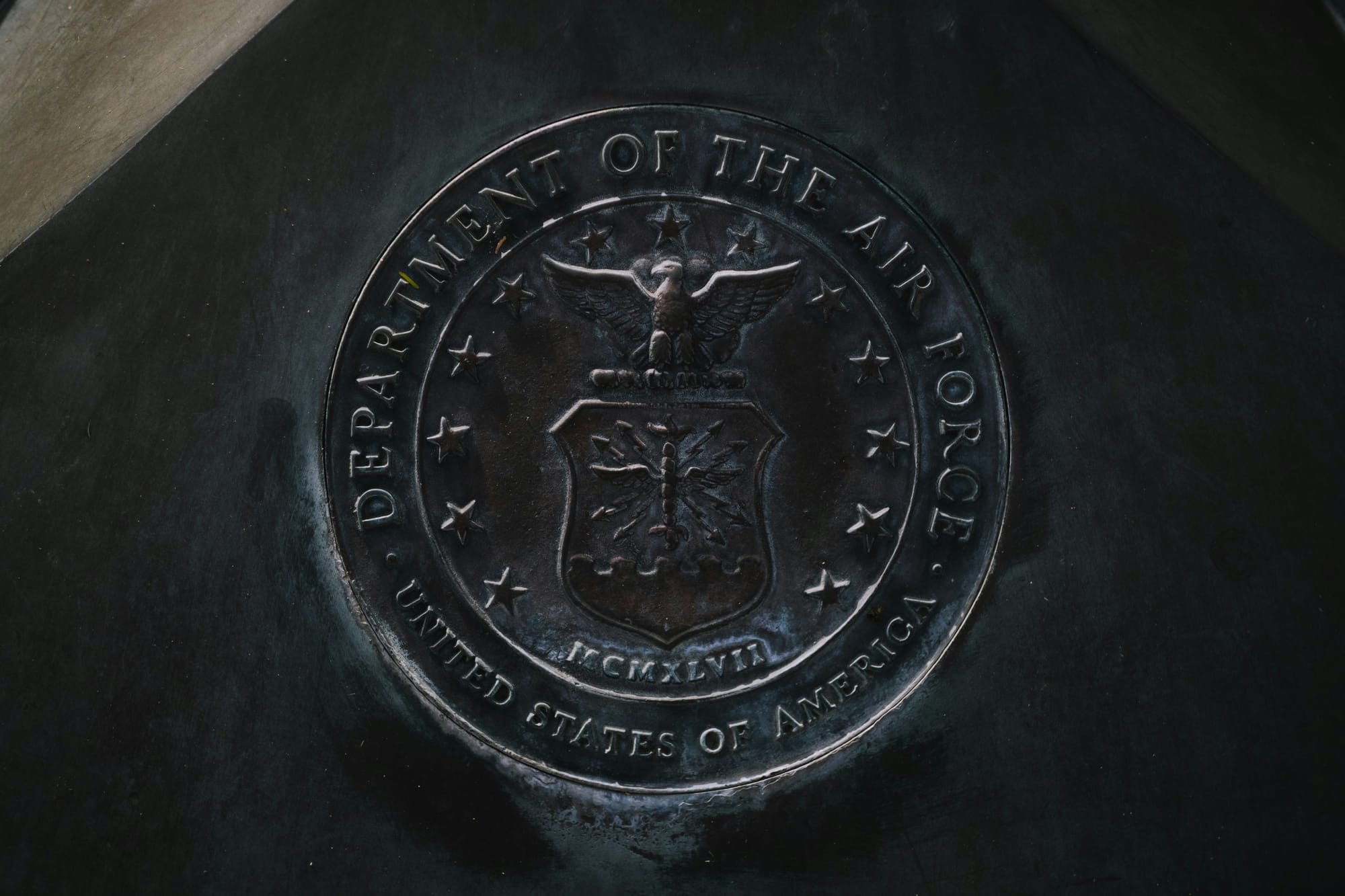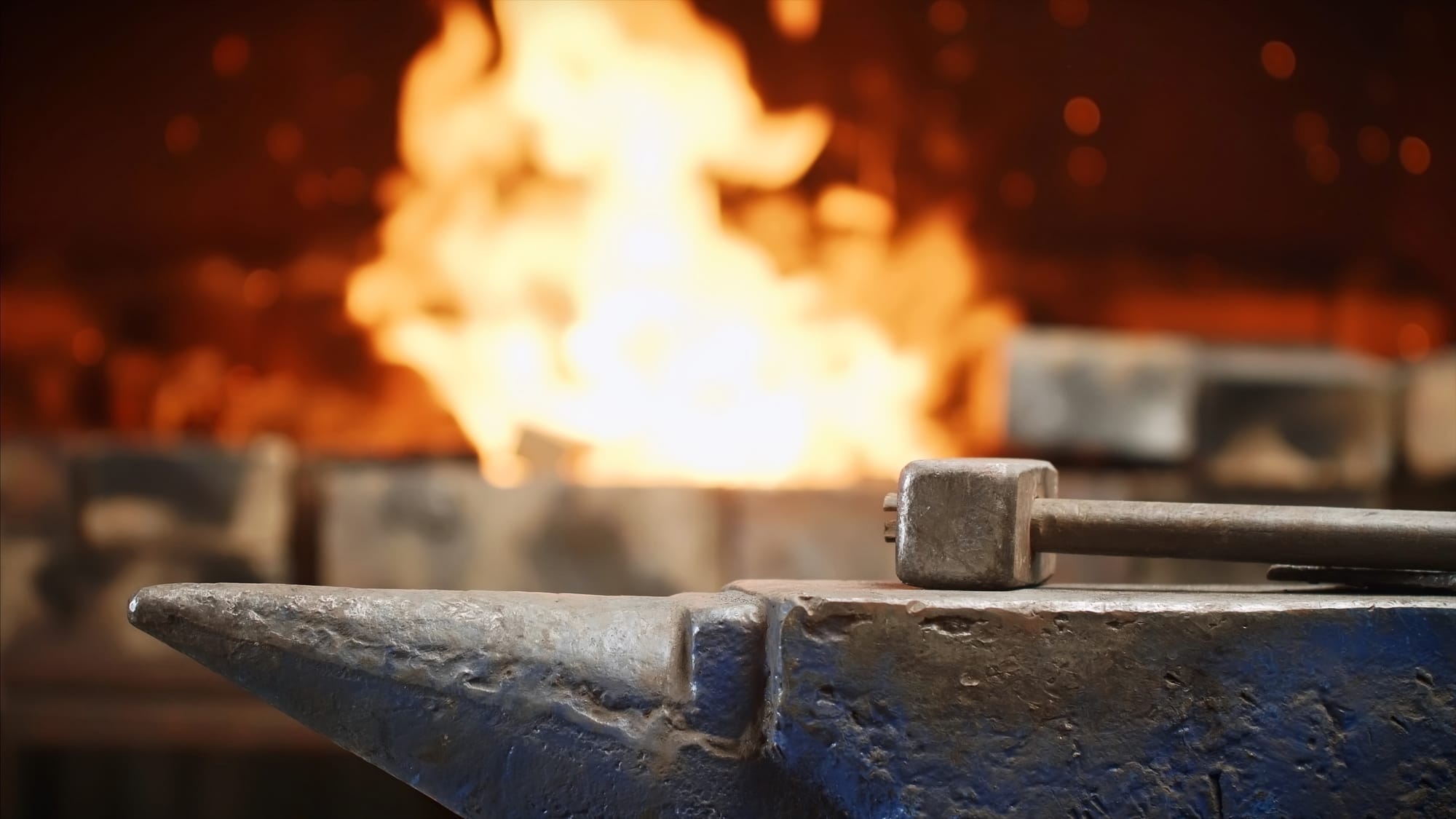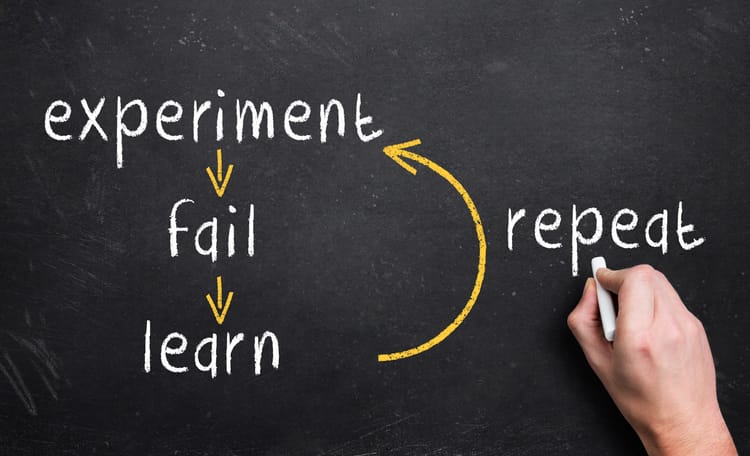The Search for the Fourth Offset

In competition, an offset is a means of compensating for an inherent disadvantage. Rather than meet an opponent in an unfavorable position, the great military strategist Sun Tzu would recommend changing the competition to either unwinnable or winnable at too great a cost.
Nobody loves a good competition more than Americans. That competitiveness is at the heart of the age-old conversation about American exceptionalism. But it’s just an idea. The idea is that people can make their own choices about many things; from that idea, we can establish a country. Simple enough. Let’s explore.
A few weeks ago, I was with some friends on a newly established “guys trip.” We had committed to connecting and sharing our time to re-center ourselves amid busy work lives. During the trip, we’d gotten ourselves in a pickle with vehicle parking, and we had to pull one truck with a manual transmission up a very steep hill with another. This is not to say that no driver or vehicle was up to the task, but that geography had more say than we did.
So, for those who love truck fights, a Chevrolet pulled a venerable Toyota up an incline steep enough to make a roller coaster jealous. After the ordeal, my friend said he was getting rid of his truck. I couldn’t believe it. His truck was a 2005 Tacoma, as tough as nails, and had never let him down. None of that seemed to matter. It didn’t matter that he was an excellent co-partner during the tow (steering); it didn’t matter that (thankfully) his truck was light enough to be towed up such a steep incline, and it didn’t matter that he had owned it for many years. A colleague told me, “The appropriate thing to do is burn it on the spot.”
For all that may be humorous in this story, there is something uniquely American at its core. From my perspective, my friend felt that his truck said something about his competence, and when thinking about competition, the etymology of these words seems eerily similar. Competence means “adequate range of capacity or ability, sufficiency to deal with what is at hand.” Competition is described as the “seeking or endeavoring to gain what another is endeavoring to gain at the same time.” Putting them together, we’re talking about a capability to win.
A capability to win.

For my friend, it’s this capability to win in the competition with the hill that I’d like to explore. If it isn’t at the heart of the American identity, it’s most certainly related. I think it’s in the spirit of what led English settlers in their search for income and religious freedom, and I think it’s the same spirit that propelled us to be innovators since then. I also think the lack of competition has slid us into mediocrity.
Our successes in industrial manufacturing and technological advances in the decades since World War II success have not only contributed to the American identity with high standards of living but have also driven us to complacency. Yet, despite our defense and industry successes, many people call American exceptionalism a myth today.
Some dislike the term “American exceptionalism” and often point to America’s past sins as evidence. Still, in this work, I’d like to focus on the examples of our greatest attributes rather than our most significant faults.
For Americans working in defense in an age of “great power competition,” mediocrity is the enemy. It always has been—not China, bureaucracy, or the political party or religion you don’t like, even though some entities are not helping the situation.

Let's return to great or strategic competition for just a bit. In the defense industry, we call advantages “offsets.” These offsets have been defined by distinct periods of critical national security significance.
· The First Offset expanded U.S. nuclear capabilities to counter Soviet nuclear weapon quantities.
· The Second Offset was U.S. precision strike capabilities, fully displayed during the Gulf War.
· The Third Offset, initiated by former Secretary of Defense Chuck Hagel, is described as a suite of autonomous systems, miniaturization, big data, and advanced manufacturing systems.
Don’t forget the US manufacturing capability during World War II.
The current political, social, economic, and public health crises have made us less competitive. Pair these with the economic and military instruments represented in the rise of China, and we are entering an era where American dominance in crucial warfighting domains is eroding. Consequently, we must find new ways to sustain and expand our advantages with limited resources. These ideas signal a need for a Fourth Offset. For defense professionals looking for an advantage, I propose looking at the heart of the American identity and, even more deeply, at its competitive nature to find our way to overmatch.
So, how do we do that? Here’s a sober idea: get back to the simple but effective practice of excellence in competition. To do that, we must return to the rigor instilled by the lessons learned from failure.

Aristotle is famous for his thoughts on excellence. The philosopher told us that “we are what we repeatedly do” and “excellence, then, is not an act but habit.” Nearly 2,400 years ago, he described it as something that could be possible in all areas of your life if cultivated through virtuous habits.
A logical next step is that our habits are exciting in character formation. Working backward, it’s easy to identify character development (or lack) through one’s habits. A simple conversation with someone will give you an idea of their interests, information diet, and, you guessed it, their habits.
Back to those offsets and some examples. My background in the Air Force will compel me to talk about it here. The U.S. Air Force wielded many of those offsets we explored earlier, and the service will tell you to use the third of our core values, Excellence In All We Do, as a guide.

It’s not bragging if it’s true.
It’s an overtly ambitious (and may appear corny) notion, but the sentiment it holds is worth exploring here. I submit that as a core value, it has driven its members to strive toward becoming the greatest Air Force on the planet. If you look at other nations like Russia and China, they have not prioritized excellence. Even though they have modernized their air forces recently, the United States Air Force maintains a qualitative and quantitative advantage over the competition. This core value, excellence in competition, has made our Air Force the world leader in stealth technology, force projection, and joint integration capabilities.
From the automotive industry, the Ford Motor Company’s motto is “go further,” which they say reflects the “brand’s commitment to progress, innovation, and exploration.” This idea has propelled the company to be the first auto manufacturer to automate vehicle production with an assembly line, pay workers a fair wage, and get to a mass-market vehicle. That same competitive spirit helped them redesign their 5.0 Coyote engine, which will humble six-figure supercars on a racetrack paired with a $60K platform. Check out Skeeter Wyatt’s YouTube video on the truck and the motor; it's super-fun. As a Chevrolet owner, rest assured this is not a Ford commercial, but ‘game recognizes game’ in that Coyote engine.
Another example of American excellence in competition can be found in Microsoft's story. In 1981, when IBM asked the 5-year-old company to produce an operating system for its personal computer, no one thought it would become the software company to power the world.
Bill Gates and Paul Allen started their journey in software engineering at 13. For the next seven years, Gates would spend more time in computer labs than in class, on only a couple hours of sleep, and worked diligently to become a self-taught software wiz. Microsoft was born when the MITS Altair 8800 presented an opportunity for Gates and Allen to try their BASIC software.
Over the next two decades, Microsoft would become one of the world's most valuable (and powerful) companies. Financially, it would achieve a valuation of $3.32 trillion today, and strategically, it would become the only private company with an office in the United Nations.
What the Air Force, Ford, and Microsoft teach us about excellence competition is this: the capability to win and be successful is the product of years of practice forged in the furnaces of experience. Heated by the flames of competition and beaten by the hammer of failure, Americans have produced some of the most significant organizations- and the most potent military capability in the world.

Some believe that we’ll figure it out. When the balloon goes up, we’ll kick it into high gear and put everyone to work. I’d like to believe that’s the case. Still, given that nearly 80% of the U.S. population would not qualify for military service due to physical, mental, or substance abuse conditions, I can’t help thinking that we’ve grown soft. Our innovations (iPads and pharmaceuticals) have hurt our ability to fight.
If we can’t get ourselves off the couch and put down fast food and pills, maybe the answer lies in our ability to innovate. Perhaps we looked even deeper at technology for attributable platforms that can offer swarming advantages. Perhaps it means we look to our friends in the Department of Commerce for more creative export controls to shore up economic self-reliance. After all, given the severe damage we’ve suffered from intellectual property theft, restructuring for reduced exposure to China can’t hurt.
I want to tie this all back to my dear friend, who is probably standing somewhere with a gasoline can and a match. The Toyota Tacoma versus Chevy Tahoe story reminded me of how much our capability to win matters to our identity. For many defense professionals, we have been thinking about our country’s capability to win in an era of strategic competition for many years. We’ve internalized China’s economic and military growth and seen it as an almost impossible hill for our Tacoma.
Yet, in our search for our Fourth Offset, I believe America has an advantage built directly into its identity. It is an advantage inextricably linked to its values, economics, and government.
Our drive to compete propels us to the great rewards in the capitalist economic systems and the same drive that will lead us to an advantage regardless of where the challenge lies on the competition conflict continuum.
Nobody is born excellent. As Aristotle said, it is a practice and something we must make habitual. Further, defense professionals need this competition to drive us. Only through competition can we find the motivation to make the necessary improvements to national security. I am a mediocre work in progress. Through rigorous effort, I have only momentarily moved away from being so.
We are competitive, and it’s part of the American identity. I also believe that we need to be motivated by a strategic competitor to force us to look inward for our distinct advantages. Those advantages have helped us build some of the world’s most significant companies, and where I believe our search for the Fourth Offset will lead us. In closing, here are a couple more of the philosopher’s quotes. The first, “life is only meaningful when striving for a goal.” And the second, “Through discipline comes freedom.”



Member discussion